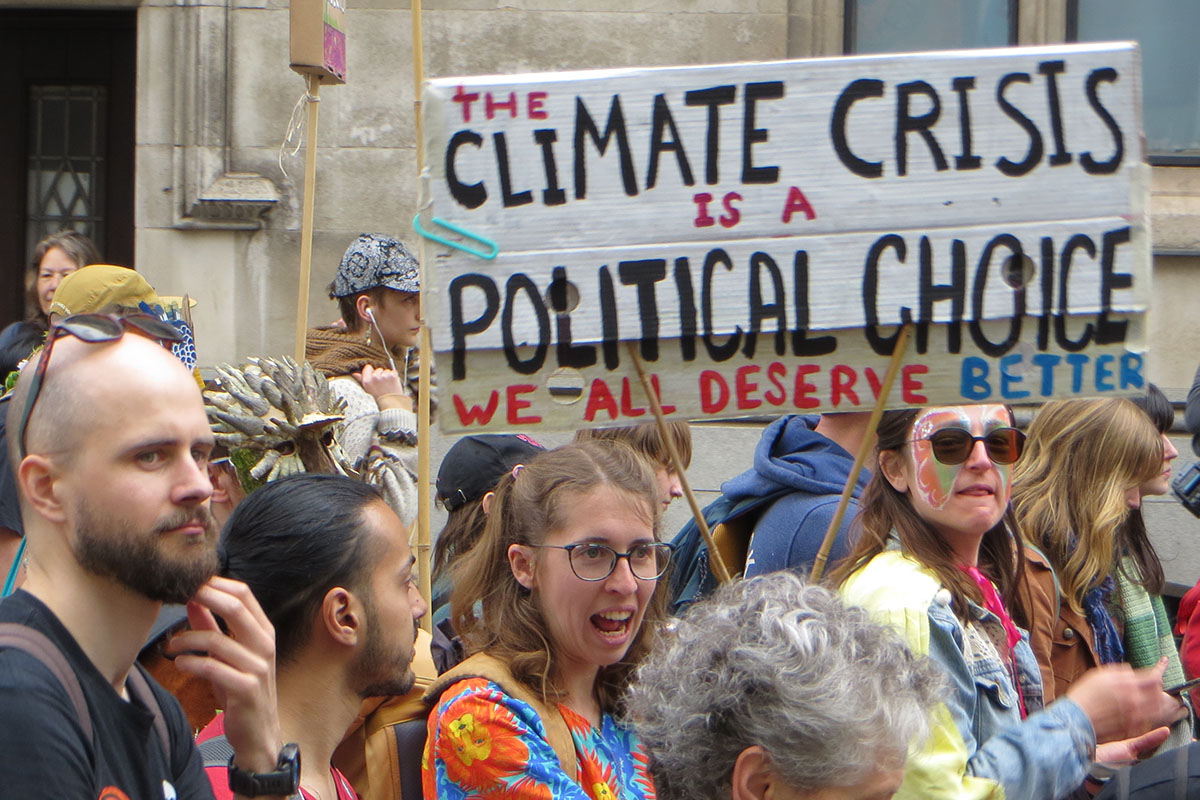
Photo: Mick Holder, NUJ LFB
Why the Climate Struggle is a Class Struggle
This excerpt from GJA Newsletter editor Paul Atkin’s speech at the Trade Union Hub of the XR Big One protest on Saturday has been put around by XR Trade Unionists.
The relevant part of the full speech is here.
Why organise in the trade unions? Because the climate struggle is a class struggle.
Most analyses of carbon impacts totalise emissions or investment by country. This is vital because its states that have to take the actions we need.
Private companies won’t do it. Only 4% of the biggest UK companies match the “gold standard” for transition plans set by the government. And that’s this government.
It’s therefore important to be very clear about who’s doing what.
The economist Adam Tooze makes the point that the world needs to invest $4 trillion a year for a viable, sustainable green transition. In 2022 the total invested was just over $1 Trillion. So, a quarter of the way there. And of that, 49.7% was China on its own. 70% more than the USA and EU combined. That’s not the image we normally have, so it’s worth mulling over.
The UK would only match EU levels of investment if an incoming Labour Government stuck with its pledge to invest $28 billion a year – and that will be a battle with the likes of Ed Balls and Peter Mandelson who are arguing that this is “unaffordable”; and we need that fight whether we are in an affiliated union or not.
When you look at carbon emissions by class
- The world’s poorest 50% have a negligible carbon footprint.
- The upper middle 40% – that includes us sitting here – have a declining carbon footprint because the carbon intensity of the goods and services we consume is going down
- But the top 10% – roughly the people on over £80K a year – will take us beyond a 1.5C temperature increase on their own. And when it gets to the top 1% – who have appropriated two-thirds of the increases in global wealth in the last two years – it gets ridiculous.
Given that these are the people in charge, it is hardly surprising that the steps being taken are so structurally inadequate. Therefore
- We need to organise in the working class movement – and the one we’ve got, not the one we wish we had
- we need to do so with a strategic clarity that this is not primarily to defend members in sectors that might be adversely affected by a transition – though we do have to do that – but recognise that we have to push for that transition to happen at all, and to try to shape it in the interests of the mass of the people. We have to lead it at whatever level we can.
